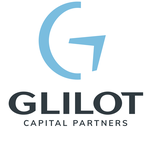Qedma Secures $26M to Advance Quantum Error Reduction
July 10, 2025, 10:41 pm

Location: Israel, Tel Aviv District, Herzliya
Employees: 1-10
Founded date: 2011
Qedma, a Tel Aviv innovator, secured $26 million Series A funding. The company develops crucial quantum noise resilience software. Their technology significantly reduces errors in quantum computing. It integrates with existing hardware platforms. Glilot Capital Partners led the investment. IBM and Korean Investment Partners joined. Funds fuel operational expansion and advanced development. This accelerates scalable quantum computing, tackling a fundamental industry hurdle.
Quantum computing faces a critical barrier: errors. Noise in quantum systems degrades performance. It prevents large-scale, practical applications. Now, a key player in this fight has secured substantial new capital. Tel Aviv-based Qedma recently announced $26 million in Series A funding. This investment propels their mission. They aim to make quantum computing truly useful.
The funding round saw significant participation. Glilot Capital Partners led the investment. Their early growth fund, Glilot+, spearheaded the round. New strategic investors joined. IBM, a global technology titan, came aboard. Korean Investment Partners also committed capital. Existing investor TPY Capital continued its support. This diverse backing signals strong market confidence.
Qedma's core offering is software. This solution directly addresses quantum noise. It enhances quantum computer performance. The technology integrates seamlessly with existing hardware. It optimizes current quantum machines. This significantly improves their reliability.
Quantum errors present a complex challenge. As quantum computers grow, errors compound. The desired signal often gets overwhelmed by noise. Traditional error correction methods exist. Yet, they require massive overhead. Correcting a single quantum bit (qubit) might demand thousands more. This makes large-scale quantum computers impractical.
Qedma’s software provides a vital alternative. It reduces, mitigates, and eventually corrects errors. The process begins by learning device characteristics. Qedma’s system executes a protocol. This protocol maps the specific noise patterns of each quantum device. Understanding these patterns is key.
Armed with this knowledge, Qedma acts. The software adjusts the quantum algorithm. This adjustment suppresses certain error types. It prevents them from occurring. Post-processing then addresses remaining errors. This mitigation step cleans up the final calculation. The result is a much more accurate computation.
This approach delivers significant impact. Qedma's solution enables larger computations. It allows quantum algorithms previously impossible to run. Computations can be up to 1,000 times larger. This vastly expands quantum computing's scope. It moves the industry closer to real-world applications.
The company's founding stemmed from deep insight. Dr. Asif Sinay, a physicist and industry veteran, recognized a need. He collaborated with Prof. Netanel Lindner, a quantum systems physicist. They saw that understanding unique device noise patterns was crucial. Prof. Dorit Aharonov, known for quantum fault tolerance work, shared a similar vision. Their combined expertise formed Qedma in 2020. This unique blend of theoretical and practical approaches built their innovative solution.
The new capital fuels aggressive expansion. Qedma will scale its operations. Development efforts will accelerate. The company plans to highlight quantum advantage soon. This involves partnerships with major quantum computing firms. Research institutions will also collaborate. This strategy targets tangible demonstrations of their technology.
Qedma's platform is hardware-agnostic. It works across various quantum computing architectures. This flexibility maximizes value from existing infrastructure. It ensures broad applicability. It positions Qedma as a foundational layer. As quantum systems scale, their importance will only grow.
The future includes advanced error correction. Qedma plans to integrate proprietary methods. These will combine with current error mitigation techniques. This promises even greater reliability. This forward-looking strategy positions them for long-term growth. The goal is to become an essential component of the quantum ecosystem.
The implications for quantum computing are profound. Qedma’s work accelerates the timeline. It moves practical quantum computing from theory to reality. This impacts numerous fields. Physics, pharmaceuticals, and cybersecurity stand to gain immensely. Quantum breakthroughs could revolutionize drug discovery. They could secure next-generation communications. They could solve complex scientific problems.
Investors recognize this immense potential. Glilot Capital’s commitment underscores Qedma’s market position. IBM's participation is particularly noteworthy. It signals a major industry player validating Qedma’s technology. This provides strategic advantages. It opens doors for collaborations and market reach. Korean Investment Partners further diversifies the investor base. It suggests global interest in quantum error solutions.
Qedma is building critical infrastructure. Their software addresses the quantum industry’s greatest challenge. By consistently reducing errors, they unlock quantum's true power. This makes quantum systems more stable and usable. It helps bridge the gap between current noisy qubits and future fault-tolerant machines.
The journey towards practical quantum computing is complex. It demands innovative solutions for fundamental problems. Qedma’s approach offers a viable path forward. Their focus on software-driven error reduction is strategic. It complements ongoing hardware advancements. It leverages existing investments in quantum infrastructure. This makes them a vital partner for the entire quantum ecosystem. Their recent funding solidifies their leadership. Qedma moves quantum computing into its next crucial phase.
Quantum computing faces a critical barrier: errors. Noise in quantum systems degrades performance. It prevents large-scale, practical applications. Now, a key player in this fight has secured substantial new capital. Tel Aviv-based Qedma recently announced $26 million in Series A funding. This investment propels their mission. They aim to make quantum computing truly useful.
The funding round saw significant participation. Glilot Capital Partners led the investment. Their early growth fund, Glilot+, spearheaded the round. New strategic investors joined. IBM, a global technology titan, came aboard. Korean Investment Partners also committed capital. Existing investor TPY Capital continued its support. This diverse backing signals strong market confidence.
Qedma's core offering is software. This solution directly addresses quantum noise. It enhances quantum computer performance. The technology integrates seamlessly with existing hardware. It optimizes current quantum machines. This significantly improves their reliability.
Quantum errors present a complex challenge. As quantum computers grow, errors compound. The desired signal often gets overwhelmed by noise. Traditional error correction methods exist. Yet, they require massive overhead. Correcting a single quantum bit (qubit) might demand thousands more. This makes large-scale quantum computers impractical.
Qedma’s software provides a vital alternative. It reduces, mitigates, and eventually corrects errors. The process begins by learning device characteristics. Qedma’s system executes a protocol. This protocol maps the specific noise patterns of each quantum device. Understanding these patterns is key.
Armed with this knowledge, Qedma acts. The software adjusts the quantum algorithm. This adjustment suppresses certain error types. It prevents them from occurring. Post-processing then addresses remaining errors. This mitigation step cleans up the final calculation. The result is a much more accurate computation.
This approach delivers significant impact. Qedma's solution enables larger computations. It allows quantum algorithms previously impossible to run. Computations can be up to 1,000 times larger. This vastly expands quantum computing's scope. It moves the industry closer to real-world applications.
The company's founding stemmed from deep insight. Dr. Asif Sinay, a physicist and industry veteran, recognized a need. He collaborated with Prof. Netanel Lindner, a quantum systems physicist. They saw that understanding unique device noise patterns was crucial. Prof. Dorit Aharonov, known for quantum fault tolerance work, shared a similar vision. Their combined expertise formed Qedma in 2020. This unique blend of theoretical and practical approaches built their innovative solution.
The new capital fuels aggressive expansion. Qedma will scale its operations. Development efforts will accelerate. The company plans to highlight quantum advantage soon. This involves partnerships with major quantum computing firms. Research institutions will also collaborate. This strategy targets tangible demonstrations of their technology.
Qedma's platform is hardware-agnostic. It works across various quantum computing architectures. This flexibility maximizes value from existing infrastructure. It ensures broad applicability. It positions Qedma as a foundational layer. As quantum systems scale, their importance will only grow.
The future includes advanced error correction. Qedma plans to integrate proprietary methods. These will combine with current error mitigation techniques. This promises even greater reliability. This forward-looking strategy positions them for long-term growth. The goal is to become an essential component of the quantum ecosystem.
The implications for quantum computing are profound. Qedma’s work accelerates the timeline. It moves practical quantum computing from theory to reality. This impacts numerous fields. Physics, pharmaceuticals, and cybersecurity stand to gain immensely. Quantum breakthroughs could revolutionize drug discovery. They could secure next-generation communications. They could solve complex scientific problems.
Investors recognize this immense potential. Glilot Capital’s commitment underscores Qedma’s market position. IBM's participation is particularly noteworthy. It signals a major industry player validating Qedma’s technology. This provides strategic advantages. It opens doors for collaborations and market reach. Korean Investment Partners further diversifies the investor base. It suggests global interest in quantum error solutions.
Qedma is building critical infrastructure. Their software addresses the quantum industry’s greatest challenge. By consistently reducing errors, they unlock quantum's true power. This makes quantum systems more stable and usable. It helps bridge the gap between current noisy qubits and future fault-tolerant machines.
The journey towards practical quantum computing is complex. It demands innovative solutions for fundamental problems. Qedma’s approach offers a viable path forward. Their focus on software-driven error reduction is strategic. It complements ongoing hardware advancements. It leverages existing investments in quantum infrastructure. This makes them a vital partner for the entire quantum ecosystem. Their recent funding solidifies their leadership. Qedma moves quantum computing into its next crucial phase.
